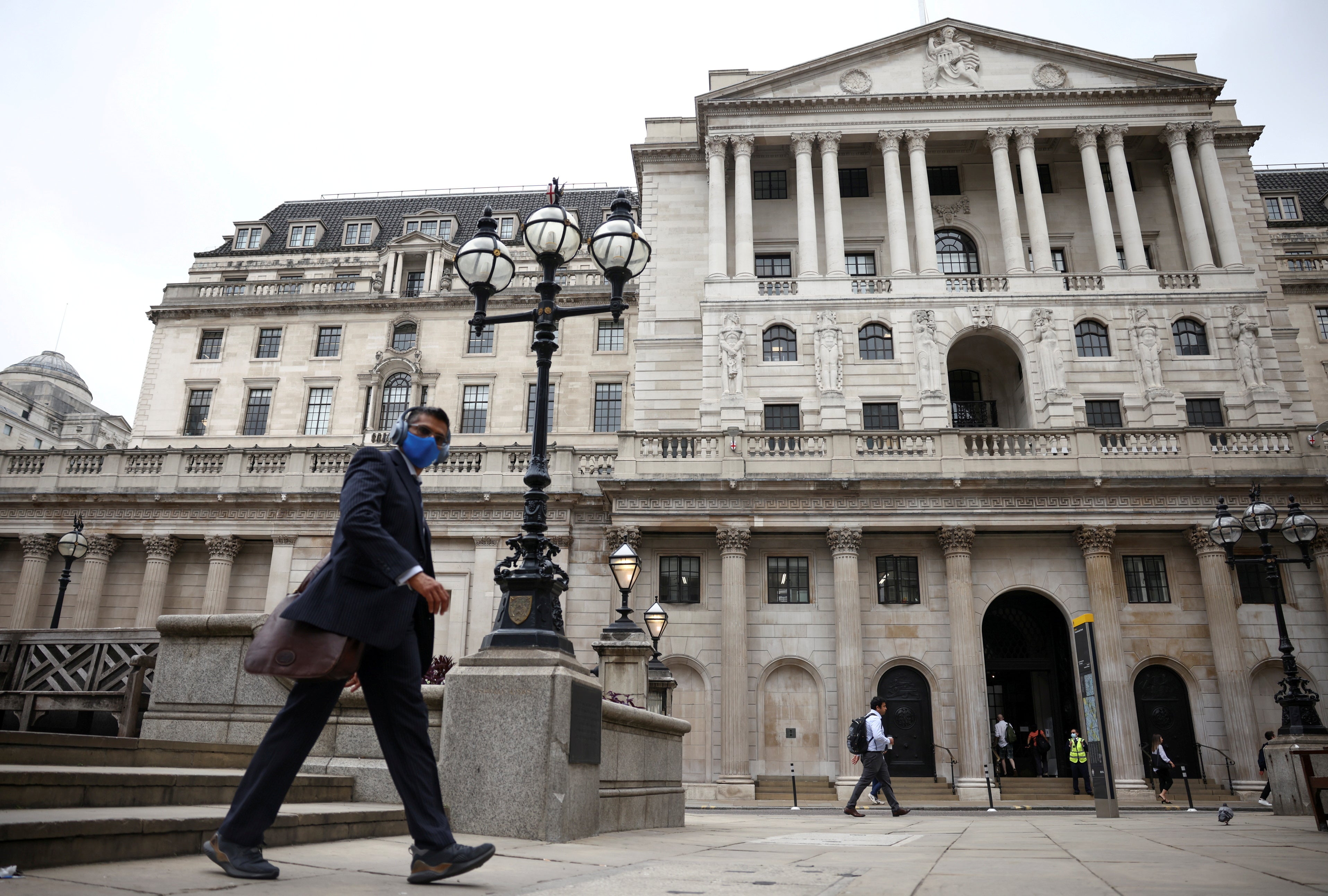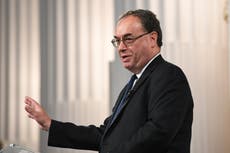Will banks lend to ‘support the British economy’ like the Bank of England wants now they can pay dividends?
The Bank of England says banks can pay dividends again. But it wants them to keep lending too, writes James Moore


Just over 10 years ago now, the British public bailed out this country’s banks in spectacular fashion. Now the banks are being asked to return the favour.
“Households and businesses are likely to need continuing support from the financial system as the economy recovers and the government’s support measures unwind over the coming months,” said the Bank of England’s Financial Policy Committee (FPC) in its latest financial stability review.
Threadneedle Street voiced particular concern about lower-income households “as they faced more persistent shocks to income and were less likely to accumulate savings” through the course of the pandemic.
This is in line with the Resolution Foundation study, released at the start of the week, which found that those at the top of the scale each added an average of £50,000 of Covid wealth to their piles, largely by dint of savings made during lockdown(s) and house-price growth through the course of the crisis.
The bottom 30 per cent, by contrast, increased their holdings by an average of just £86 apiece. According to the Office for National Statistics’ latest review of the nation’s spending habits, that would about cover the cost of an average family’s fuel and power (£79) for a week or the food bill (£62) for a week and a bit.
Even that pitiful £86 would probably look like an Aladdin’s Cave to some, something the FPC clearly took note of in voicing concerns about levels of unsecured debt, which is “more concentrated at the lower end of the income distribution”.
It’s signalling that there may be trouble ahead with the government’s support measures being withdrawn as Boris Johnson presses ahead with his increasingly reckless-looking mask-free reopening strategy. And the FPC is right to do so.
But fear not: it thinks Britain’s banks can step up to the plate and keep the economic show on the road.
“The FPC continues to judge that the banking sector remains resilient to outcomes for the economy that are much more severe than the Monetary Policy Committee’s central forecast. This judgement is supported by the interim results of the 2021 solvency stress tests.”
Is it a stretch to see in the review the implication that the government is outsourcing the support of low-income individuals, and certainly debt-ridden small businesses that the FPC is also worried about, to the banks from here on out? That’s one way of looking at this. And if that’s the case, the Bank is playing the role of loyal servant by wagging a stern finger at its charges.
“The interim results of our 2021 [stress] test support the FPC’s judgement that banks can lend to households and businesses, even in very challenging scenarios.
“It is in banks’ collective interest to continue to support viable, productive businesses, rather than seek to defend capital ratios by cutting lending.
“The FPC expects banks to use all elements of their capital buffers as necessary to support the economy through the recovery.”
Failure to do this, it warns, could have an adverse effect on the UK plc and thus an adverse effect on the banks because, obviously, what goes around comes around.
So the banks need to do their bit for Queen and country, and there’s a carrot to encourage them. They’re being allowed to pay dividends and to buy back their own shares, bringing them into line with peers in Europe and the US.
Of course, telling the banks that you’d like them to get on with lending money to “support the economy” is one thing. Their actually doing that when there’s a feast of dividend and buyback-shaped carrots in front of them, and a bevvy of big shareholders calling on them to chow down is another matter entirely.
There’s also the gorilla in the room. The problem with using loans, whether or not they’re backed by the government, as a means of bailing out an economy that’s faced an unprecedented shock is that they have to be paid back with interest. Unless, of course, you happen to be a bank.
Join our commenting forum
Join thought-provoking conversations, follow other Independent readers and see their replies
Comments
Bookmark popover
Removed from bookmarks